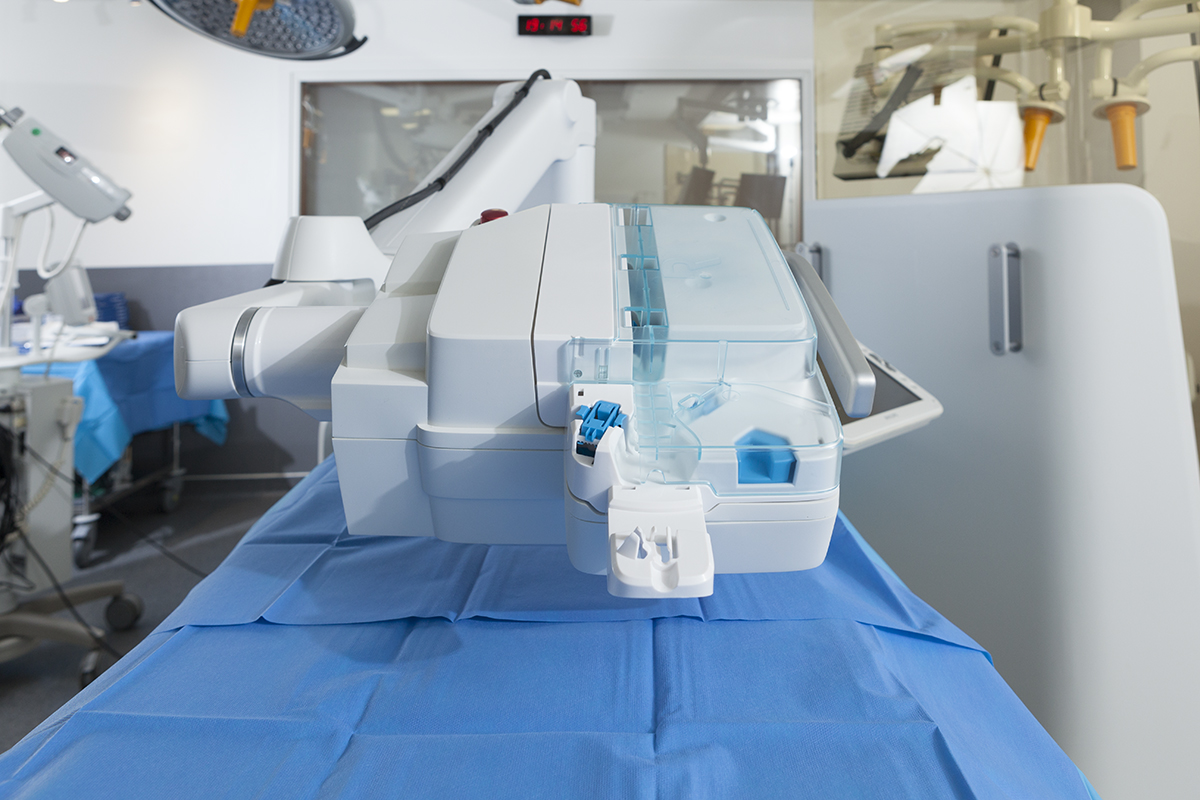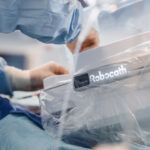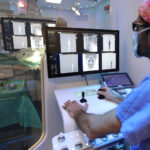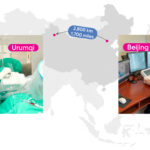Share this post:

Rouen, France, May 22, 2018 – Robocath, a company that designs, develops and commercializes cardiovascular robotic systems for the treatment of vascular diseases, announces today during the EuroPCR congress that its first robotic solution, R-OneTM, met all its primary efficacy and safety endpoints in the first pre-clinical study.
The prospective, randomized, controlled, multi-operator study evaluated the efficacity and safety of the robotic system compared to a manual procedure. Results showed that there was no significant difference between the procedures for all the primary endpoints and that R-OneTM achieved:
- 100% technical success
- No Major Adverse Cardiac Events (MACE)
- Total protection from X-rays for the operator
- No arterial damage
Philippe Bencteux, MD, president and founder of Robocath, said: “This study demonstrates how safe, intuitive and easy to use our solution is with only a one-minute difference in procedure duration between the two groups. R-OneTM will bring huge benefits during Percutaneous Coronary Interventions (PCI) to both patients, in terms of intervention precision, and to operators, with increased comfort. We would like to thank Pr. Eric Durand, Dr. Jean Fajadet and Pr. Remi Sabatier for their participation in this trial which represents a strategic milestone for the company.”
R-OneTM is expected to be commercially available at the end of the year in Europe and the Middle East.
About the pre-clinical study
The pre-clinical prospective, randomized, controlled, multi-operator study was designed to demonstrate the
non-inferiority of R-oneTM compared to manual percutaneous coronary intervention (PCI) in a porcine model. In total, 42 arteries were stented either manually (21) or with robotic assistance (21); 24 arteries were analyzed for patency and flow at 30 days and 24 arteries went through histopathological analysis. Endpoints included technical success and MACE.
The study started on October 17, and ended on November 14, 2017.
The study was conducted at the CRO IMM-R in Paris (France) with three operators:
- Eric Durand, head of the cardiovascular department at Rouen University Hospital (France)
- Jean Fajadet, co-director of the cardiovascular disease department at the Clinique Pasteur in Toulouse (France) and co-director of EuroPCR Congress
- Rémi Sabatier, interventional cardiologist at Caen University Hospital (France)
About Robocath
Founded in 2009 by Philippe Bencteux, MD, Robocath designs, develops and commercializes innovative robotic solutions to improve endovascular procedures to treat vascular diseases, including heart attacks, the leading cause of death worldwide.
Currently in the approval stage, the first solution developed by Robocath, R-OneTM, is expected to be launched at the end of 2018 in Europe and the Middle East.
Robocath has the ambition to become the world leader in vascular robotics and develop the remote treatment of vascular emergencies to ensure the best care for all.
Selected by Forbes magazine in the top four medical start-ups in France, Robocath has a staff of 25.
To download documents, you can right-click on the links above and chose « Save link as… »




